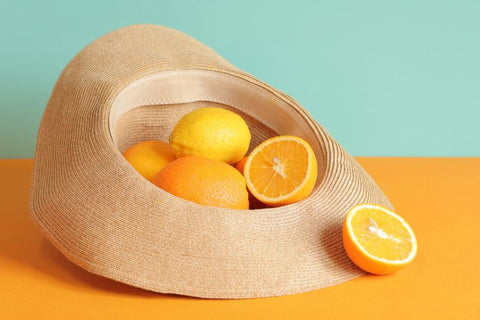While the rise of vegan influencers and plant-based eating trends may suggest otherwise, experts caution against hasty dietary shifts without proper guidance. Misleading information about red meat and universal nutrition plans are putting millions at risk of iron deficiency anemia, a condition marked by constant fatigue, hair loss, and mood swings. In other words, the fad may not be worth the potential health consequences - iron deficiency anemia. This article will delve into a deeper understanding of iron deficiency, its causes, and how using iron supplements can help fill the missing gap in our health journey.
What is iron-deficiency anemia?
Iron plays an important role in our health. We need iron to make hemoglobin, the part of red blood cells that carries oxygen throughout the body. When you have iron-deficiency anemia, you don’t have enough iron to make hemoglobin, so the body starts to make smaller and fewer red blood cells. Less hemoglobin and fewer red blood cells also mean your cells can’t get the oxygen they need.
What causes an iron deficiency?
Iron deficiency can be caused by several factors, mainly:
- Insufficient iron intake: This is the most common cause, especially for people who:
- Eat a limited diet: This includes people who avoid meat, dairy, or other iron-rich foods, such as vegetarians, vegans, or those with restrictive diets.
- Have digestive issues: Conditions like celiac disease, Crohn's disease, or ulcerative colitis can interfere with iron absorption.
- Have had weight loss surgery: Some procedures can bypass the part of the intestine where iron is absorbed.
- Increased iron needs: Certain situations require more iron than usual, and if the increased need isn't met, deficiency can occur. This is common in:
- Pregnant women: The growing baby needs iron for development.
- Children: Rapid growth demands more iron.
- Breastfeeding women: Iron is passed to the baby through breast milk.
- People with heavy menstrual bleeding: Regular heavy periods can lead to significant iron loss.
- Chronic blood loss: Any source of ongoing blood loss can deplete iron stores, including:
- Gastrointestinal bleeding: Ulcers, polyps, cancer, or regular use of NSAIDs like aspirin can cause internal bleeding.
- Heavy menstrual periods: See "Increased iron needs" above.
- Frequent blood donations: While generally safe, regular donations can deplete iron stores in some individuals.
Some rare conditions can also affect iron absorption or usage, like hemochromatosis (iron overload) or certain infections.
What are the symptoms of iron deficiency?
Initially, iron deficiency can be so mild that it goes unnoticed. But as the body becomes more deficient in iron and anemia worsens, the signs and symptoms intensify.
Iron deficiency signs and symptoms may include:
- Extreme fatigue
- Weakness
- Pale skin
- Chest pain, fast heartbeat, or shortness of breath
- Headache, dizziness, or lightheadedness
- Cold hands and feet
- Inflammation or soreness of your tongue
- Brittle nails
- Unusual cravings for non-nutritive substances, such as ice, dirt, or starch
- Poor appetite, especially in infants and children
What is the best diet for iron deficiency anemia?
So, why can’t we just eat more iron-rich greens? The type of iron found in meat is called heme iron, which is more easily absorbed than the type of iron you get from nuts/seeds/grains and vegetables. Growing up watching the old Popeye cartoons with the classic ‘spinach is good for you’ message, is all very well, but in reality, we would have to eat about a wheelbarrow full of spinach to get our iron requirements each week. (Sorry Popeye, I still love you!)
Iron is absorbed in the small intestine and only about 10% of dietary iron is absorbed. This is why supplementation with the likes of SISU vitamins and supplements could be very beneficial.
Heme Iron
There are two food sources of iron, heme (animal) and non-heme (vegetarian). The best dietary source of heme iron is:
- Lean red meat.
- Chicken
- Turkey
- Fish are also sources of iron, but they contain less than red meat.
Non-heme
- Some non-heme food sources are:
- Beans
- Some vegetables contain poorly absorbed (non-heme) iron
- Foods rich in vitamin C (e.g., citrus fruits and fresh vegetables), eaten with small amounts of heme iron-containing foods, such as meat, may increase the amount of non-heme iron absorbed from beans, and other vegetables.
That being said, it is possible to get too much iron and it is always important to work with your healthcare provider to determine if you need iron supplements to find iron that does not cause digestive upset or constipation.
Iron-Rich Foods
Here is a list of iron-rich foods:
- Sesame seeds*
- Black beans*
- Cooked spinach
- Dark chocolate
- Garbanzo beans*
- Kale
- Sun-dried tomatoes
- Kidney beans*
- Swiss chard
- Sunflower seeds*
- Lentils*
- Prunes
- Potatoes
- Olives
- Lima beans*
- Black-eyed peas
- Peas
- Spirulina*
- Lean red meat*
*Do not consume these foods if you suffer from PKU (Phenylketonuria – a metabolic disorder preventing the proper absorption of high-protein foods)
Key takeaway:
Understanding and addressing iron deficiency anemia is crucial for maintaining overall health and well-being. The complexities of iron absorption, coupled with varying dietary preferences, make it essential to approach this issue with informed decisions. While dietary adjustments, including incorporating heme and non-heme iron sources, play a significant role, consulting with healthcare professionals is paramount.
Moreover, the partnership with SISU Canada offers a reliable avenue for quality supplements, ensuring a science-backed approach to combating iron deficiency. The pursuit of vibrant health involves not only recognizing the symptoms but also taking proactive steps toward a well-rounded and iron-rich lifestyle.
Remember, your health is a journey, and addressing iron deficiency is a pivotal step toward a more energized and resilient you.
Frequently Asked Questions (FAQs)
- Q: Can iron deficiency be reversed solely through dietary changes?
A: While dietary adjustments are essential, severe cases may require iron supplements. Consult with your healthcare provider for personalized guidance.
- Q: Are all iron-rich foods equally effective in combating deficiency?
A: No, heme iron from animal sources is more easily absorbed than non-heme iron. Balancing both types can enhance iron absorption.
- Q: How can I differentiate between normal fatigue and fatigue due to iron deficiency?
A: Iron deficiency fatigue tends to be persistent and unexplained. If in doubt, consult your healthcare provider for a thorough assessment.
- Q: Is it possible to get too much iron from supplements or certain foods?
A: Yes, excessive iron intake can have adverse effects. Work closely with your healthcare provider to determine your specific iron needs.
- Q: Can iron deficiency affect mental health?
A: Yes, iron deficiency has been linked to mood swings and cognitive issues. Addressing iron levels may positively impact mental well-being.
Other Resources
For those who are curious, want to expand their knowledge, or just like keeping informed, here are some links to sites that you might like. These online resources come from institutions that hold a sterling reputation for their expertise and stringent standards for relevant information.
Mayo Clinic - Iron Deficiency Anemia
https://www.mayoclinic.org/diseases-conditions/iron-deficiency-anemia
Mayo Clinic is a renowned medical institution with a strong reputation for providing accurate and trustworthy health information.
Health Canada - Iron and Your Health
https://www.canada.ca/en/health-canada/services/nutrients/iron.html
As a Canadian government health authority, Health Canada ensures reliability and accuracy in information related to health and nutrition.
WebMD - Understanding Iron Supplements
https://www.webmd.com/diet/supplement-guide-iron
WebMD is a reputable source for health-related content and is widely recognized for its comprehensive and reliable information.
Harvard Health Publishing - Iron and Your Health
https://www.health.harvard.edu/topics/iron
Harvard Health Publishing, affiliated with Harvard Medical School, is known for its authoritative health information.





